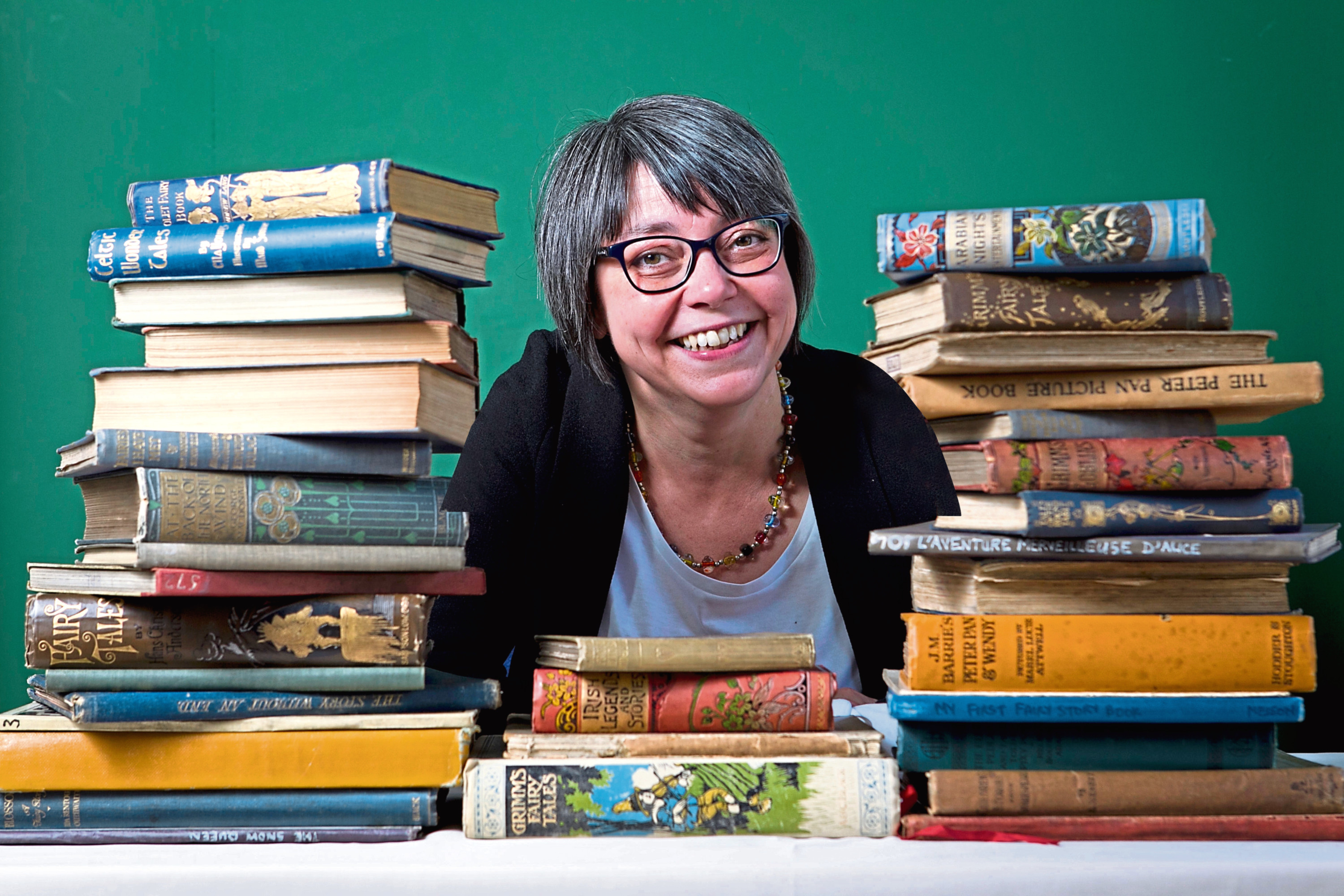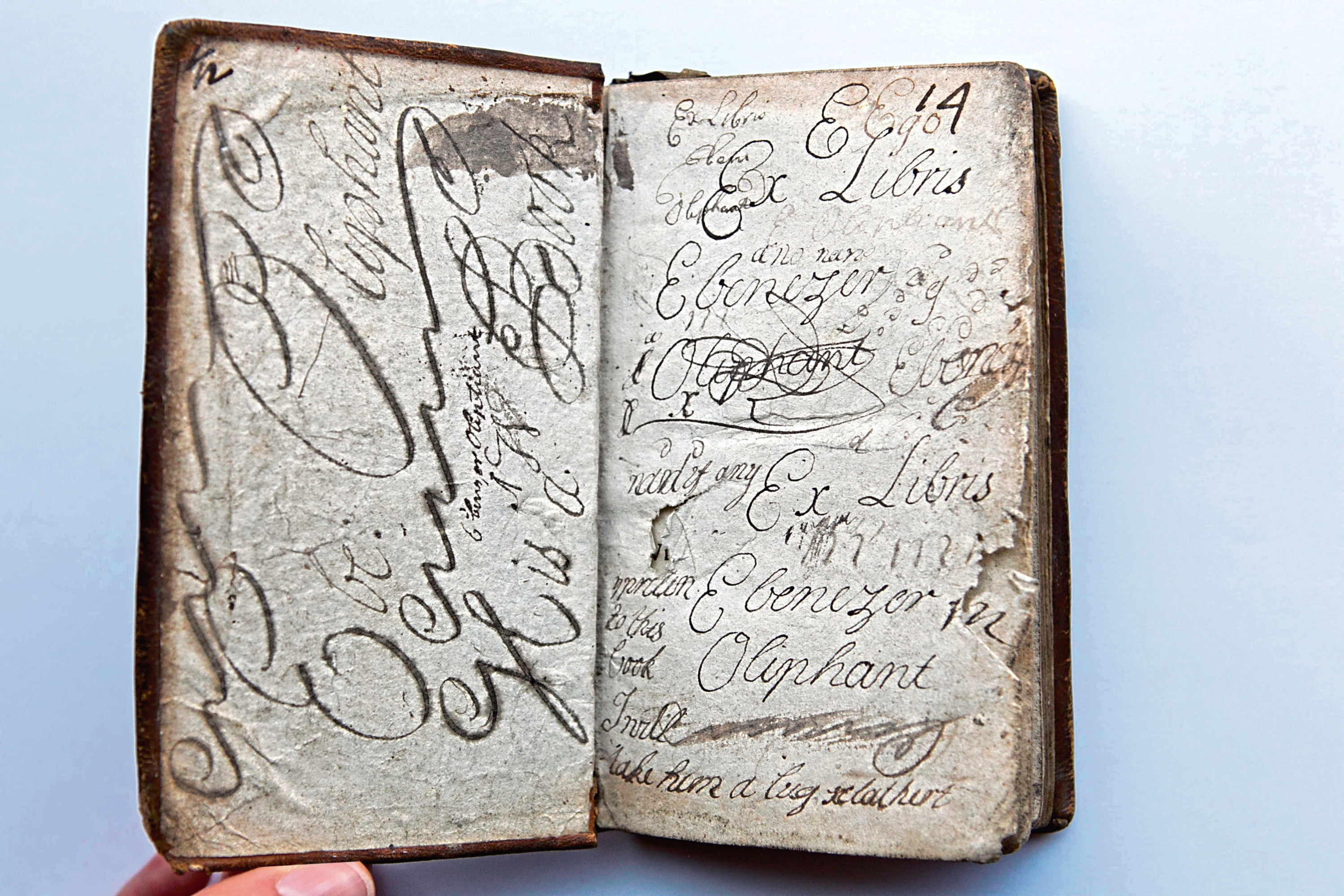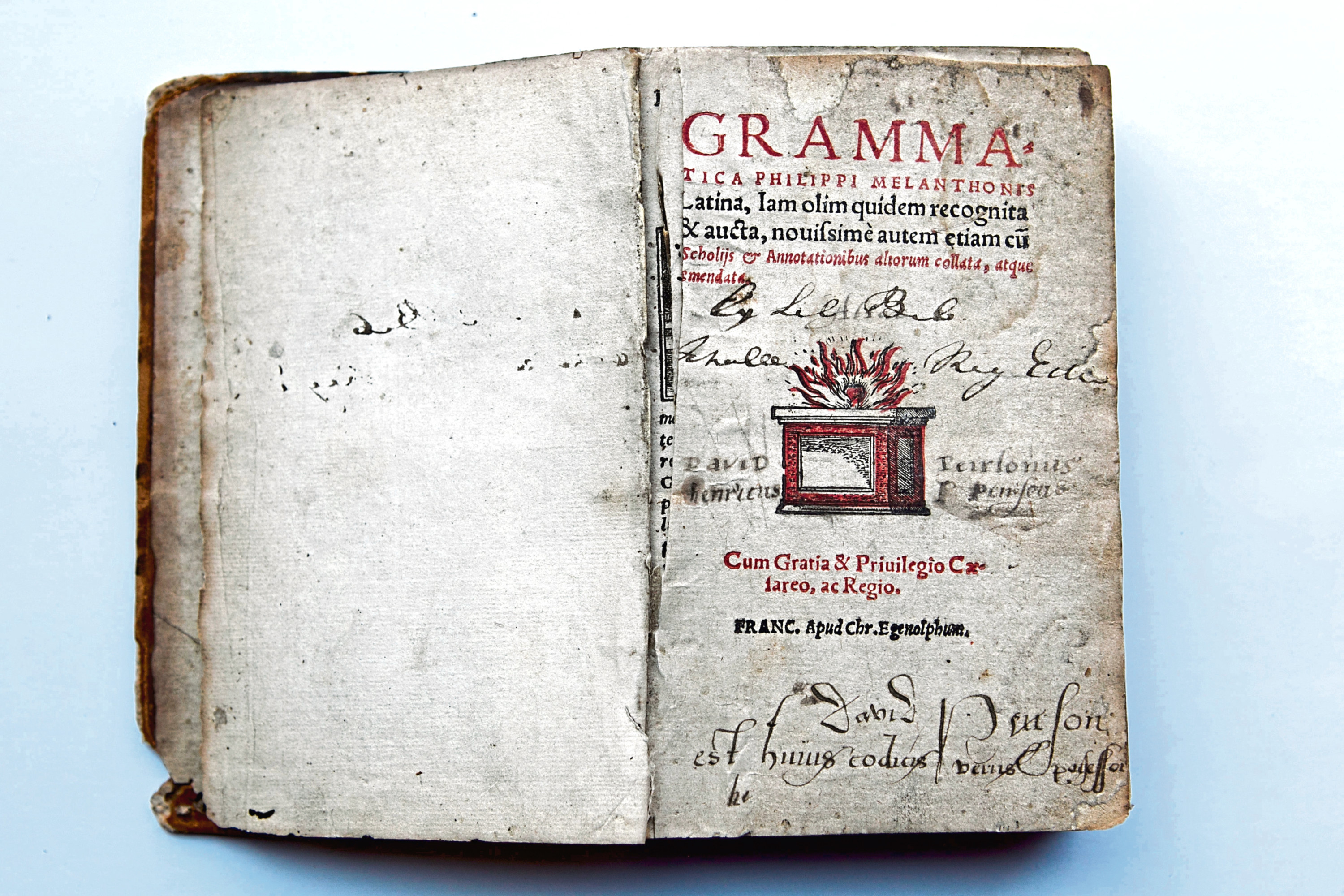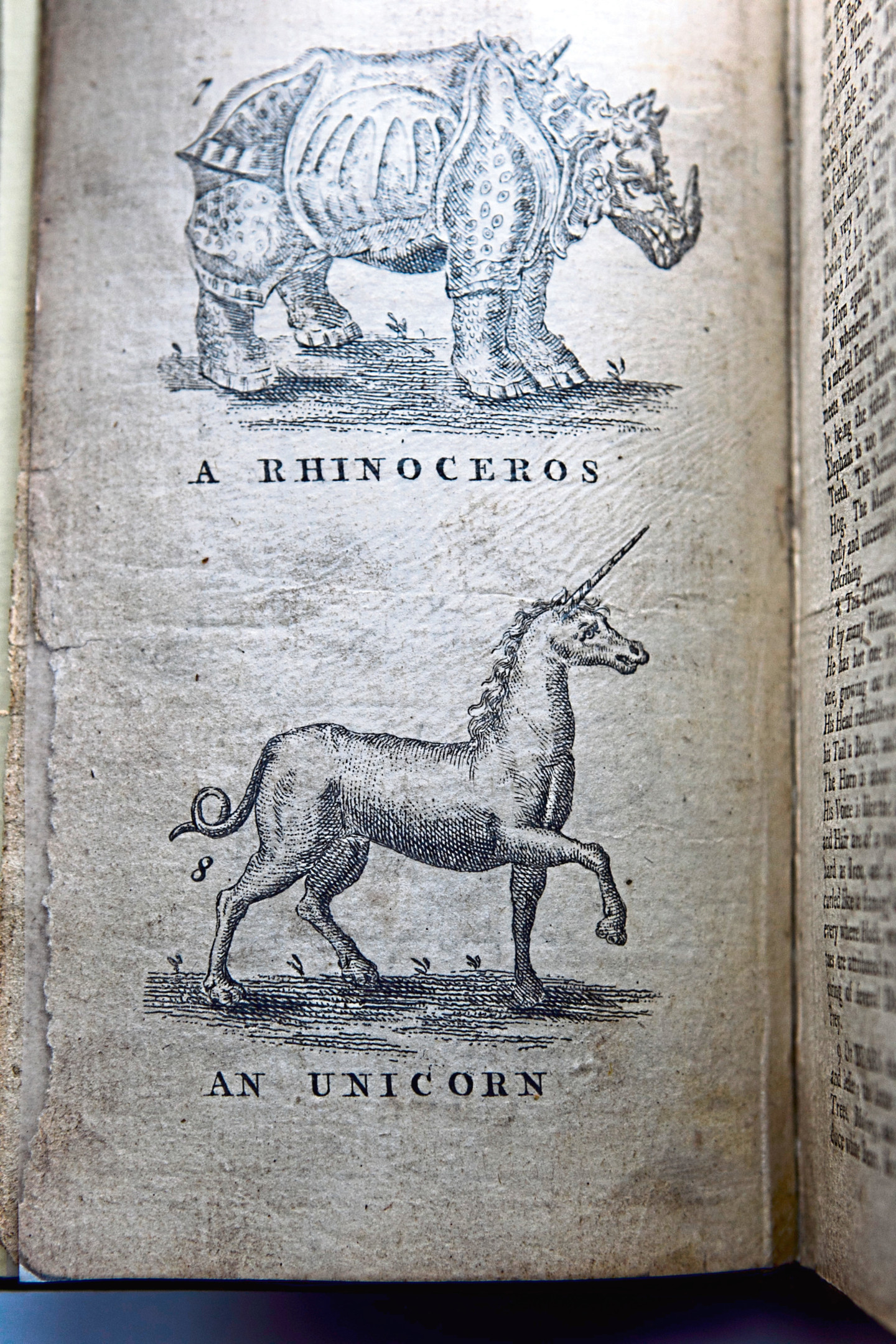
EVERY book tells a story but so, too, do the personal scribbles, messages and items found within those dog-eared pages.
A new exhibition opening at the Museum of Childhood in Edinburgh this week charts a journey through centuries of childhood books.
And while the publications reveal a lot about the attitudes of society at the time, even more intriguing are the mementoes and memories found jotted inside by the young owners.
“History is a novel for which the people is the author,” wrote revered French poet Alfred de Vigny, and never has that been more literal than in Growing Up With Books, which opens on Friday.
The museum’s curator, Lyn Stevens, spent two years working with volunteers from Scotland’s Early Literature for Children Initiative at the University of Edinburgh, sifting through 15,000 books that had been donated to the museum since it was founded in 1955.
They found everything from the practised autograph of a boy who would go on to become one of Bonnie Prince Charlie’s biggest supporters to interesting relationship advice for boys from Robert Baden Powell that would not make it into any present day Scout handbook.
“We have everything from textbooks, encyclopaedias and poetry to pop-up books, annuals, fiction and handmade books,” said Lyn.
“The oldest book, by far, is from 1554 – it’s fragile but in good condition.
“There’s a book called The History of Rome that caught the eye due to the name Ebenezer Oliphant written in calligraphy over and over again in every single space of the inside front and back cover.
“It was such an interesting name and rang a bell for me.
“There was an exhibition on at the National Museum about Jacobites and I realised that was where I knew him from.
“He came from a pro-Jacobite family in Perthshire. He made a travelling canteen for Bonnie Prince Charlie, left behind at the Battle of Culloden.
“It’s interesting to wonder why he was writing his name over and over – was it simply boredom or was he dreaming of the future?”
A series of handmade educational books written by a mother for her two daughters with the inscription “Mam-ma for Sibella and Mary Anne Roxburgh, November 1811” shows a deeply personal and emotional mother-daughter bond via the books.
And novels by Hans Christian Andersen given to a boy named David, from his aunt in Copenhagen, has letters tucked inside that she had written to him in his childhood as well as souvenirs from his trips to the Danish city later in his life.
“It was clearly something he had treasured and kept into his adulthood,” continued Lyn.
The original content of the books also tells a story about society of the time.
“There is a book called Rovering To Success by Baden Powell where he advises boys not to be rushed into engagement with a girl that he has only seen by gaslight,” said Lyn.
“You can see changing attitudes through the pages of these books. It’s been fascinating and a joy to work on.”

Enjoy the convenience of having The Sunday Post delivered as a digital ePaper straight to your smartphone, tablet or computer.
Subscribe for only £5.49 a month and enjoy all the benefits of the printed paper as a digital replica.
Subscribe

